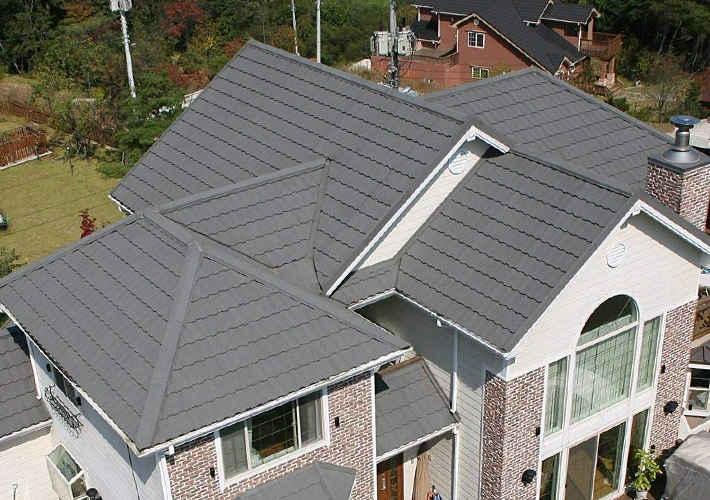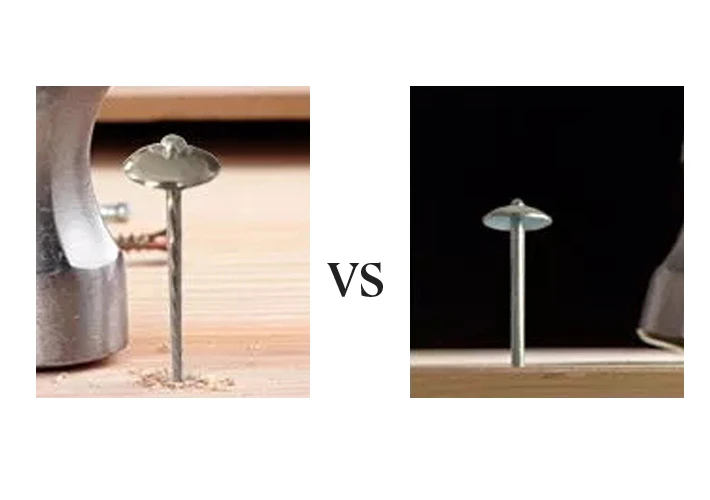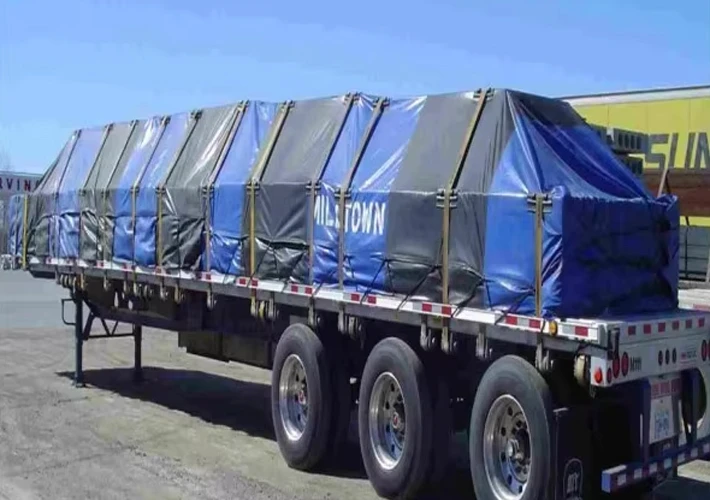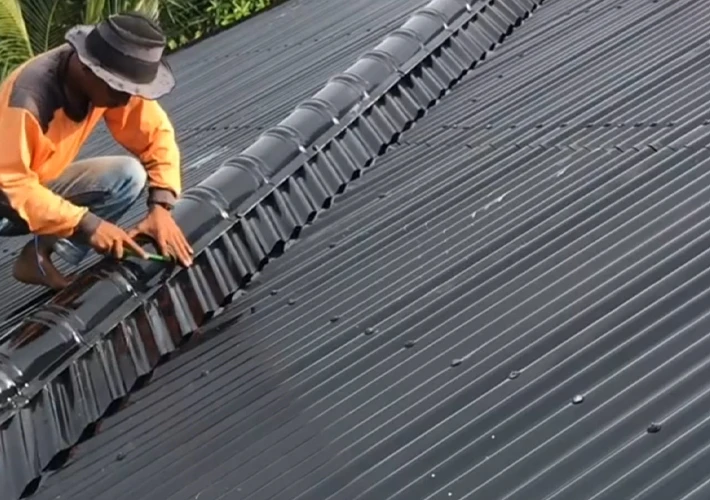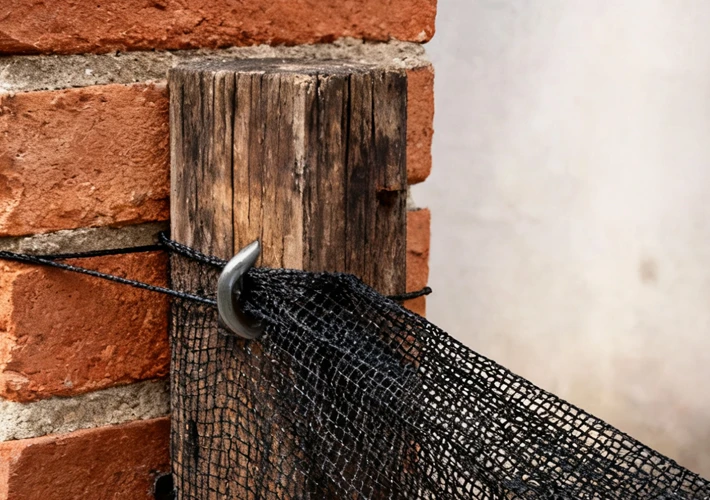When planning a new building or renovation project, one of the most critical decisions involves choosing the right roofing tiles. The roof is more than just a protective layer—it affects a building’s durability, appearance, insulation, and long-term maintenance costs. With a wide range of roofing materials available today, from stone-coated steel tiles to clay, concrete, and asphalt shingles, understanding how to select the best option for your specific needs is essential.
This article provides an in-depth guide on how to choose the right roofing tiles for different climates, budgets, and design requirements, helping importers, wholesalers, and builders make informed purchasing decisions.
Understanding the Role of Roofing Tiles
Roofing tiles play multiple roles beyond simply covering a structure. A well-selected roof tile system can significantly improve a building’s energy efficiency, sound insulation, waterproofing, and aesthetic appeal.
Key functions of roofing tiles include:
- Protection: Shielding the building from rain, snow, sunlight, and wind.
- Insulation: Regulating indoor temperatures by minimizing heat transfer.
- Aesthetic impact: Contributing to the architectural style and visual appeal of the building.
- Longevity: Providing long-term structural stability and value.
- Property value: High-quality tiles enhance resale and market value.
Selecting the right roofing tiles ensures both functional performance and architectural harmony.
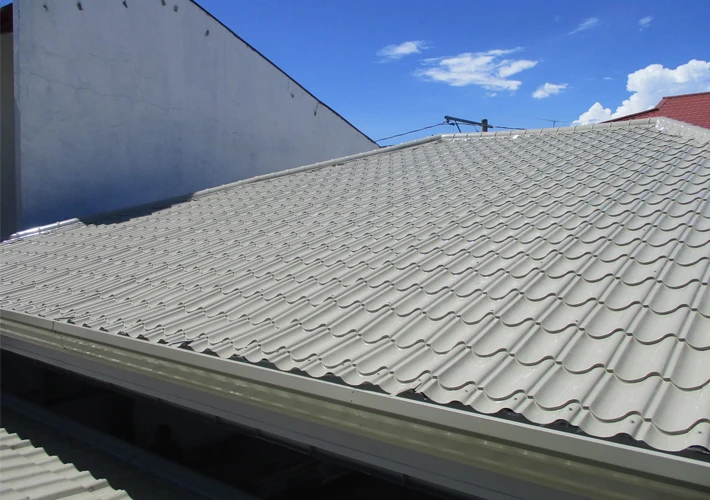
Major Types of Roofing Tiles and Their Features
When choosing roofing tiles, understanding the different types available in the market is the first step. Below are some of the most popular roofing tile materials used worldwide:
2.1 Stone-Coated Metal Roofing Tiles
Stone-coated metal tiles have become a global favorite in recent years, especially in residential and commercial projects. They combine the strength of steel with the aesthetic of traditional roofing materials.
Advantages:
- Lightweight yet extremely durable.
- Resistant to corrosion, fading, and UV damage.
- Suitable for all weather conditions — heavy rain, snow, or heat.
- Long lifespan (30–50 years).
- Available in a variety of colors and profiles (classic, shake, Milano, Roman).
Disadvantages:
- Slightly higher initial cost than asphalt shingles.
- Installation requires professional expertise.
Best for: Coastal regions, tropical climates, and areas with extreme weather conditions.
2.2 Clay Roofing Tiles
Clay tiles are known for their classic appearance and superior heat resistance. They’ve been used for centuries, especially in Mediterranean and Spanish-style architecture.
Advantages:
- Excellent thermal insulation.
- Fire-resistant and eco-friendly.
- Maintains color over decades.
- Adds traditional beauty to buildings.
Disadvantages:
- Heavier than most other materials.
- Fragile — may break if stepped on.
- High transportation and installation costs.
Best for: Hot, dry climates and luxury residential projects.
2.3 Concrete Roofing Tiles
Concrete tiles are made from a mix of cement, sand, and water. They are highly durable and affordable compared to clay tiles.
Advantages:
- Cost-effective alternative to clay tiles.
- Strong and weather-resistant.
- Available in a variety of colors and finishes.
- Low maintenance requirements.
Disadvantages:
- Heavy — requires strong roof support.
- Can absorb water, leading to possible algae growth.
Best for: Large housing developments or cost-sensitive commercial projects.
2.4 Asphalt Shingles
Asphalt shingles are widely used in North America due to their affordability and versatility.
Advantages:
- Easy to install.
- Economical choice for residential buildings.
- Available in many styles and colors.
- Good waterproofing performance.
Disadvantages:
- Shorter lifespan (15–25 years).
- Less suitable for high-temperature regions.
- Not as environmentally friendly as metal or clay tiles.
Best for: Residential housing and small projects with limited budgets.
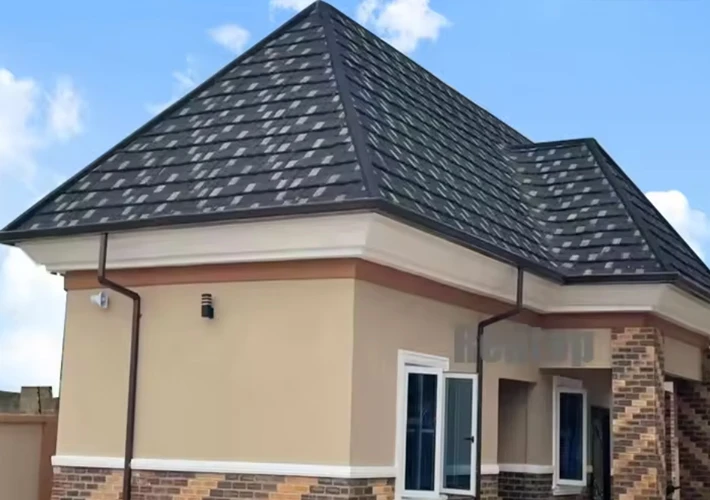
2.5 Synthetic Roofing Tiles
Synthetic roofing tiles are made from polymer, rubber, or composite materials. They imitate the look of slate or wood while offering excellent durability.
Advantages:
- Lightweight and impact-resistant.
- Easy to install and maintain.
- Sustainable options available.
- UV and fire-resistant.
Disadvantages:
- Higher upfront cost.
- Limited long-term performance data compared to traditional materials.
Best for: Modern architectural projects prioritizing sustainability and design flexibility.
Factors to Consider When Choosing Roofing Tiles
To select the most suitable roofing material, it’s important to evaluate several practical factors:
3.1 Climate and Weather Conditions
Your region’s climate directly influences tile performance.
- Hot climates: Choose heat-resistant materials like clay or stone-coated steel.
- Cold or snowy regions: Opt for metal or concrete tiles that can withstand freeze-thaw cycles.
- Coastal areas: Corrosion-resistant stone-coated metal tiles perform best.
3.2 Building Design and Aesthetic
The roofing material should complement the building’s architectural style.
- Traditional villas: Clay or classic profile metal tiles.
- Modern homes: Flat profile metal or synthetic tiles.
- Commercial projects: Concrete or stone-coated tiles with uniform textures.
3.3 Weight and Structural Strength
Roofing tiles vary significantly in weight. Ensure your roof structure can support the load:
- Stone-coated tiles: around 6 kg/m²
- Concrete tiles: up to 45 kg/m²
- Clay tiles: about 35 kg/m²
Lightweight roofing systems reduce structural stress and installation costs.
3.4 Budget and Maintenance Costs
While initial cost is important, long-term maintenance and durability should also factor in.
- Asphalt shingles are cheaper but require frequent replacement.
- Stone-coated steel offers higher initial cost but lower lifetime cost.
- Clay and concrete tiles need occasional cleaning and maintenance.
3.5 Lifespan and Warranty
Durability directly affects ROI.
- Asphalt shingles: 15–25 years
- Concrete tiles: 30–40 years
- Clay tiles: 50+ years
- Stone-coated metal tiles: 40–50 years
Choose manufacturers offering solid warranties (often 30–50 years for metal tiles).
3.6 Fire, Wind, and Impact Resistance
For regions prone to storms or wildfires, always check for certifications such as:
- Class A fire rating
- High wind resistance (up to 120 mph)
- Impact resistance (UL 2218 standard)
Stone-coated and metal tiles often provide the best performance in these areas.
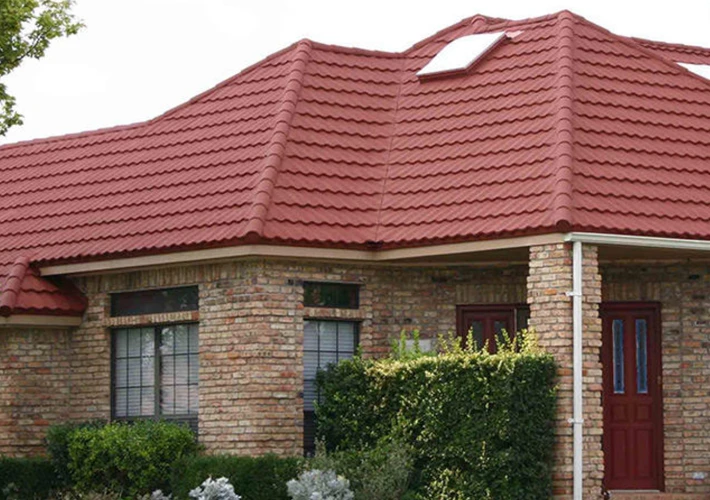
The Importance of Manufacturer Quality and Certification
Choosing a reliable roofing tile manufacturer is as important as choosing the material itself. Poor-quality tiles can lead to leaks, fading, and structural failure within a few years.
What to check before purchasing:
- Factory certifications: ISO 9001, CE, SGS.
- Material sourcing: High-grade aluminum-zinc coated steel base for stone-coated tiles.
- Surface treatment: Advanced coating technology for corrosion and color retention.
- Production capacity: Factories with automated equipment and strict quality control ensure consistency.
- Customization options: Profiles, colors, and textures tailored to your project needs.
Pro tip: Visit the manufacturer’s factory (or request video verification) to inspect raw materials and production processes. Reliable suppliers are transparent about their production standards.
Comparing Roofing Tiles by Performance
| Roofing Tile Type | Durability | Weight | Cost | Maintenance | Lifespan | Weather Resistance |
|---|---|---|---|---|---|---|
| Stone-coated metal | ★★★★★ | Light | $$ | Low | 40–50 yrs | Excellent |
| Clay tile | ★★★★★ | Heavy | $$$ | Medium | 50+ yrs | Excellent |
| Concrete tile | ★★★★☆ | Heavy | $$ | Medium | 30–40 yrs | Good |
| Asphalt shingle | ★★☆☆☆ | Light | $ | High | 15–25 yrs | Fair |
| Synthetic tile | ★★★★☆ | Light | $$$ | Low | 40–50 yrs | Good |
Practical Buying Tips for Importers and Contractors
If you are a B2B buyer, importer, or construction project manager, consider the following when sourcing roofing tiles from China or other global suppliers:
6.1 Evaluate Factory Scale and Export Experience
Choose suppliers with proven export records. Factories that serve international markets usually maintain stable quality standards and offer efficient logistics.
6.2 Request Product Samples
Always request samples before bulk purchasing to verify material quality, coating color, and texture.
6.3 Confirm Packaging and Shipping Details
Proper packaging prevents damage during long-distance transportation. Ask about pallet packaging, waterproof wrapping, and reinforcement.
6.4 Check After-Sales Support
Reliable manufacturers provide technical guidance for installation and maintenance, along with a solid warranty policy.
6.5 Stay Updated on Market Trends
In 2025, stone-coated steel roofing tiles continue to dominate export markets due to their high performance and elegant appearance. Demand is particularly strong in Africa, Southeast Asia, the Middle East, and South America.
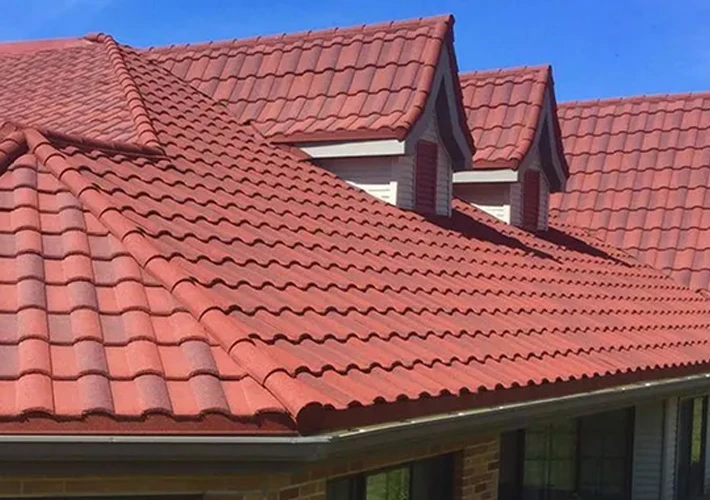
Environmental and Sustainability Considerations
Modern construction increasingly values sustainability. Roofing materials play a vital role in energy conservation and environmental protection.
Environmentally friendly options:
- Stone-coated metal tiles: Recyclable and energy-efficient.
- Clay tiles: Natural materials, minimal pollution.
- Synthetic tiles: Made from recycled polymers.
Additionally, lighter roofing systems reduce transportation energy and carbon footprint.
Conclusion: Finding the Perfect Balance
Choosing the right roofing tiles involves balancing durability, cost, aesthetics, and performance. While each material has unique advantages, stone-coated metal roofing tiles have emerged as one of the best all-round options for modern projects due to their superior weather resistance, longevity, and visual appeal.
Whether you’re a wholesaler seeking reliable supply or a construction company aiming to deliver quality results, always partner with professional manufacturers that provide certified products, consistent quality, and strong export support.
About Us – Professional Stone-Coated Roofing Tile Manufacturer in China
We are a leading Chinese factory specializing in stone-coated metal roofing tiles, with advanced production equipment, strict quality control, and strong export capability. Our roofing tiles are exported to over 60 countries, trusted for their durability, elegance, and long-term performance.
✅ ISO & CE Certified
✅ 30–50 Year Warranty
✅ Global Dealer Cooperation Welcome
✅ Sample Boxes Available for Evaluation
Contact us today to get free catalogs, videos, and the latest factory prices.
👉 Discover how our premium roofing tiles can enhance your next project!

